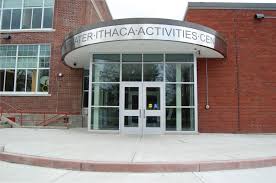Kofi Acree:
A few years ago, I did a Black History Month presentation for 5 and 12 year old children at the Greater Ithaca Activity Center (GIAC) in Ithaca, N.Y. In part, I wanted to share my passion for history and show the kids how important it is for them to learn about the past. I believe that it is important to establish for young children that people of African descent had a history beyond the slavery experience in the United States. I shared the origins of Black History Month, and showed a trailer to the film, More Than a Month. I also shared with the students the books that interested me when I was their age: Famous American Negroes by Langston Hughes; I Am Third by Gale Sayers; and African Heroes and Heroines by Carter G. Woodson.
Black History Month can be traced back to 1926, when Carter G. Woodson, a Harvard-trained historian and whose parents were enslaved, wanted to set aside a time to honor the achievements of African Americans. Woodson saw a growing number of weeklong celebrations during the early 1900s. He saw “Boy Scout Week,” “Clean-up Week,” “Music Week,” “Education Week,” and “Better Health Week.” He felt that a “Negro History Week” was in order. Woodson was also influenced by Omega Psi Phi, one of the oldest African-American fraternities. The Omegas strongly believed that the culture and heritage of African Americans should be celebrated. He chose the week that included the birthdays of Abraham Lincoln (Feb 12) and Frederick Douglass (Feb. 14). The celebration of Negro History Week became so popular in the 1940s that Woodson sold Negro History Week kits, posters, and photos depicting periods of African-American history. By 1976, the year of America’s Bicentennial, Negro History Week had become Black History Month.
As the Africana Librarian, and an overall enthusiast for Black History, I recognize it all year, and encourage others to do the same. To find out more about Black History see these online guides that I created: Ancient African Civilizations, Toni Morrison: Literary Icon, Martin Luther King, Jr., Angela Davis, Harriet Tubman, Frederick Douglass, Reparations, and Willard Straight Occupation. Other rich materials about people of African descent can be found on the Africana Library web site. Black History is certainly more than a month. I believe that I left the kids at GIAC with some food for thought. They not only asked questions, but eagerly shared what they knew about Black History. One thing that I walked away with that day is that it is paramount to see Black people with dignity and a past that matters.
Resources:
White, Alvin. “Godfather of Black History.” Sepia. vol. 25, no. 2, February 1976, p. 58-66.
Goggin, Jacqueline. Carter G. Woodson: A Life in Black History. Baton Rouge: Louisiana State University Press, 1993.
Goggin, Jacqueline. “Black History Month/Negro History Week.” Encyclopedia of African-American Culture and History. Edited by Jack Salzman, David Lionel Smith, and Cornel West. New York: Simon & Schuster and Prentice-Hall, 1996. 352-353.
L. D. Reddick, “Twenty-Five Negro History Weeks,” The Negro History Bulletin, volume 13, no. 8, May, 1950, p. 178.
